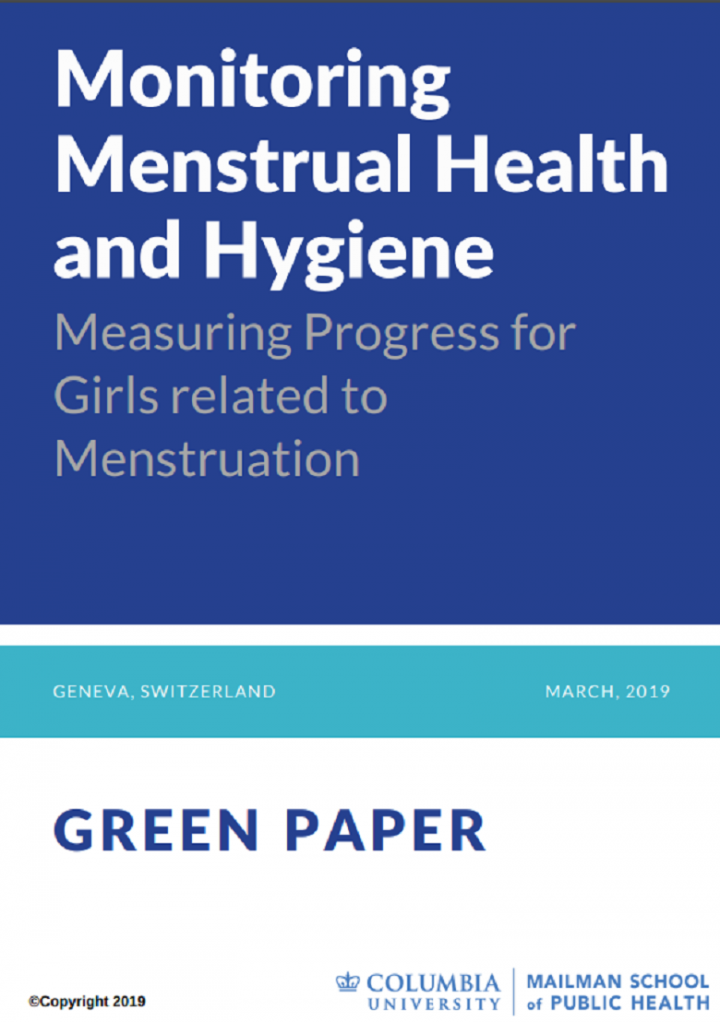Monitoring Menstrual Health and Hygiene: Measuring Progress for Girls on Menstruation Sommer, M., Zulaika, G., Schmitt, M., Gruer, C. (2019)
There is growing global momentum around addressing menstruation as an important health, education and gender equality issue. However, a critical barrier to making progress on addressing menstruation and the range of girls’ needs around this issue, is the lack of adequate validated measures related to measuring menstruation within global health and development. Measures are most needed that are aligned to five priority areas (sexual and reproductive health, psychosocial health, education, WASH, gender). The absence of measures as standards by which to assess progress on addressing menstruation-related interventions, limits both assessment of important outcomes and the creation of programs to change them. Further, menstrual health and hygiene-related indicators have yet to be incorporated within these five areas, despite the potential influence of menstruation on their respective outcomes, including reaching associated Sustainable Development Goal (SDG) targets.
In March 2019, a multi-sectoral group of researchers, practitioners, and monitoring and evaluation specialists convened to identify priority indicators across key sectors (or priority areas) within global health and development, and assess alignment of the identified priority indicators with menstruation. The focus of the meeting was on the menstruation-related issues impacting girls in and out of school, as they represent the population for which there exists the strongest existing body of evidence. This Green Paper briefly details the meeting justification and background, key discussions, and proposed next steps. Similar approaches and analyses are needed in the future that engage a much broader population and realm of menstruation-related topics, particularly the needs of menstruators in workplace contexts, a significantly overlooked issue.
Although key priority indicators that align with menstruation were identified and analyzed across the five areas, further work is needed to move forward the measurement agenda. A key outcome of this initial effort was the consensus to submit a question during the open window of the Demographic and Health Survey (DHS) submission period that recommended data be captured at the national level about awareness of menstruation prior to the participant’s first menstrual period. Recommendations for next steps include to create a knowledge-sharing platform; support the validation of key indicators of relevance to the five areas in relation to menstruation; improve tools available for countries to monitor menstruation and mark progress; and support translation of research findings for country uptake.
Bibliographic information
Sommer, M., Zulaika, G., Schmitt, M., Gruer, C. (2019). Monitoring Menstrual Health and Hygiene: Measuring Progress for Girls on Menstruation Columbia University and WSSCC
Filter / Tags
EnglishMenstrual Health and Hygiene (MHH)

